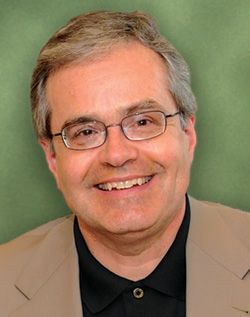Another Look by David Faust
 I’ve heard some disturbing sermons, but I’ve never seen the congregation throw rocks at the preacher when the sermon ended.
I’ve heard some disturbing sermons, but I’ve never seen the congregation throw rocks at the preacher when the sermon ended.
That’s what happened to one of the great figures in the book of Acts. Known as the first Christian martyr, Stephen was “full of faith and of the Holy Spirit” (6:5), “full of God’s grace and power” (6:8). When the synagogue leaders opposed his arguments, “they could not stand up against his wisdom or the Spirit by whom he spoke” (6:10). They couldn’t discredit the teaching, so they tried to destroy the teacher. They dragged Stephen before the Sanhedrin and falsely accused him on trumped up charges.
Stephen’s eloquent response in Acts 7 fills more than 50 verses and covers centuries of Hebrew history, from Abraham and Joseph to Moses and the Law, from David and Solomon to the persecuted prophets. The sermon includes a number of comments that angered Stephen’s listeners.
“The Most High does not live in houses made by men” (v. 48). This point irritated Jerusalem’s leaders whose love for the temple bordered on idolatry.
“You stiff-necked people, with uncircumcised hearts and ears!” (v. 51). A stiff neck makes it difficult to turn around or look at things a different way. Stephen’s stubborn listeners refused to repent. Their bodies were circumcised as the Law required, but their hearts rejected God’s leadership.
“You are just like your fathers: You always resist the Holy Spirit!” (v. 51). These men took pride in their religious heritage, but they needed to revisit their family history. They were following the same path of disobedience their ancestors walked, grieving God’s Spirit in the process.
“Was there ever a prophet your fathers did not persecute? They even killed those who predicted the coming of the Righteous One. And now you have betrayed and murdered him” (v. 52). The Righteous One is the Messiah, Jesus. Peter stressed the same point on the Day of Pentecost: “God has made this Jesus, whom you crucified, both Lord and Christ” (2:36). Peter’s receptive audience asked, “Brothers, what shall we do?” and soon were baptized, but Stephen’s hostile listeners “were furious and gnashed their teeth at him.” They became even angrier when Stephen looked toward Heaven and told the crowd he saw “the Son of Man standing at the right hand of God. At this they covered their ears and, yelling at the top of their voices, they all rushed at him, dragged him out of the city and began to stone him” (7:54-58).
What can we learn from Stephen? I’m impressed by his character and reputation, his comprehensive grasp of Scripture, his intellect and skill in public debate, his reliance on the Holy Spirit, his courage in the face of opposition, and his bold presentation of hard truths. I like the fact that before becoming a preacher he humbly served tables and cared for widows (6:1-6). And I admire the tender way he addressed the Lord when the stones began to fly and it was time for him to die: “Lord Jesus, receive my spirit” (7:59).
Most of all, I’m impressed by Stephen’s willingness to forgive. Who could blame him if he held a grudge? He was smart, yet arrogant men rejected his arguments. He was faithful, but they accused him of misrepresenting God. He was courageous, but cowardly men killed him. He served God with all his heart and preached without compromise, and what did it get him?
The same thing it got Jesus.
Stephen died as Jesus did, forgiving his enemies and praying, “Lord, do not hold this sin against them” (v. 60). Stephen not only out-argued the opposition; he out-loved them.
A young man named Saul of Tarsus stood there that day, watching Stephen die (v. 58). Years later, transformed into the apostle Paul, he wrote that “Christ’s love compels us” (2 Corinthians 5:14), and that love compels us still. It’s stronger than any stones an enemy can throw. It makes us desire God’s best for others—even those who hate us—even if it costs us our lives.



Comments: no replies